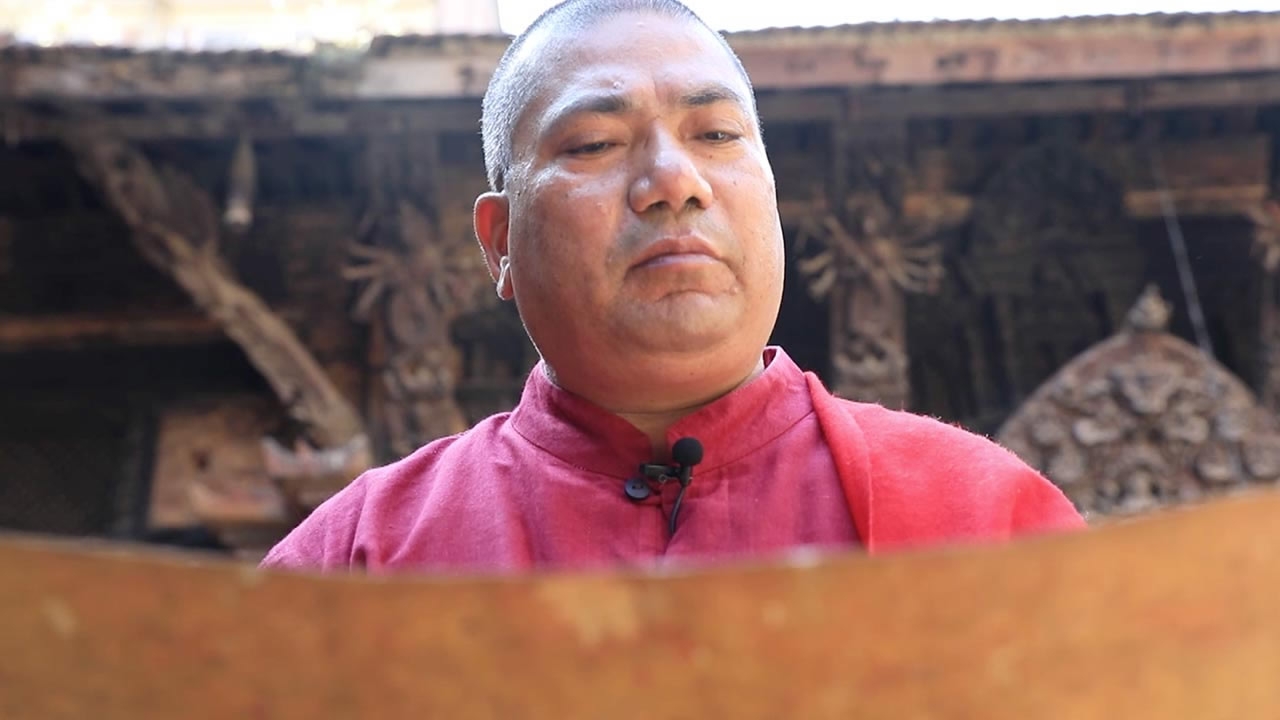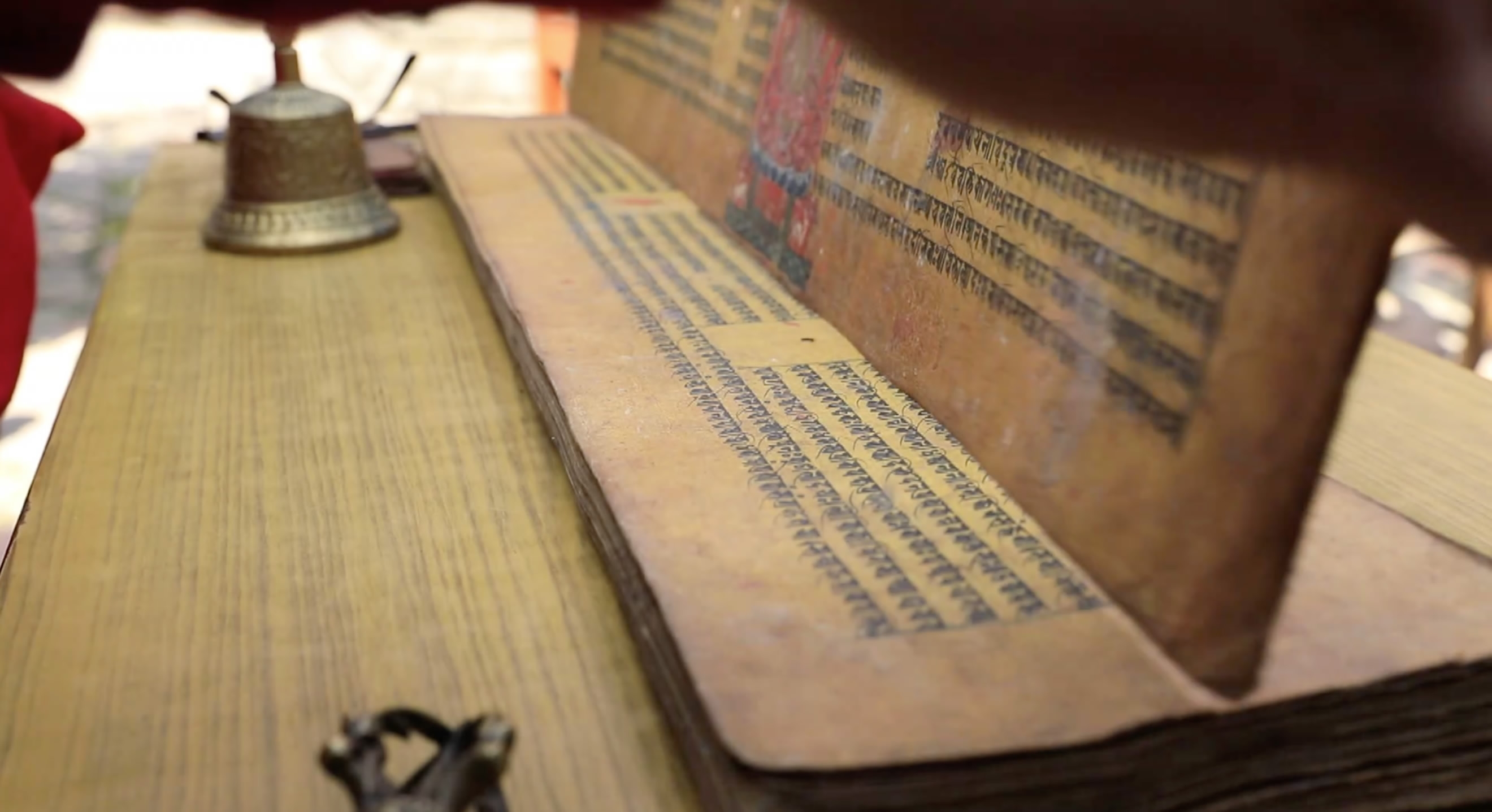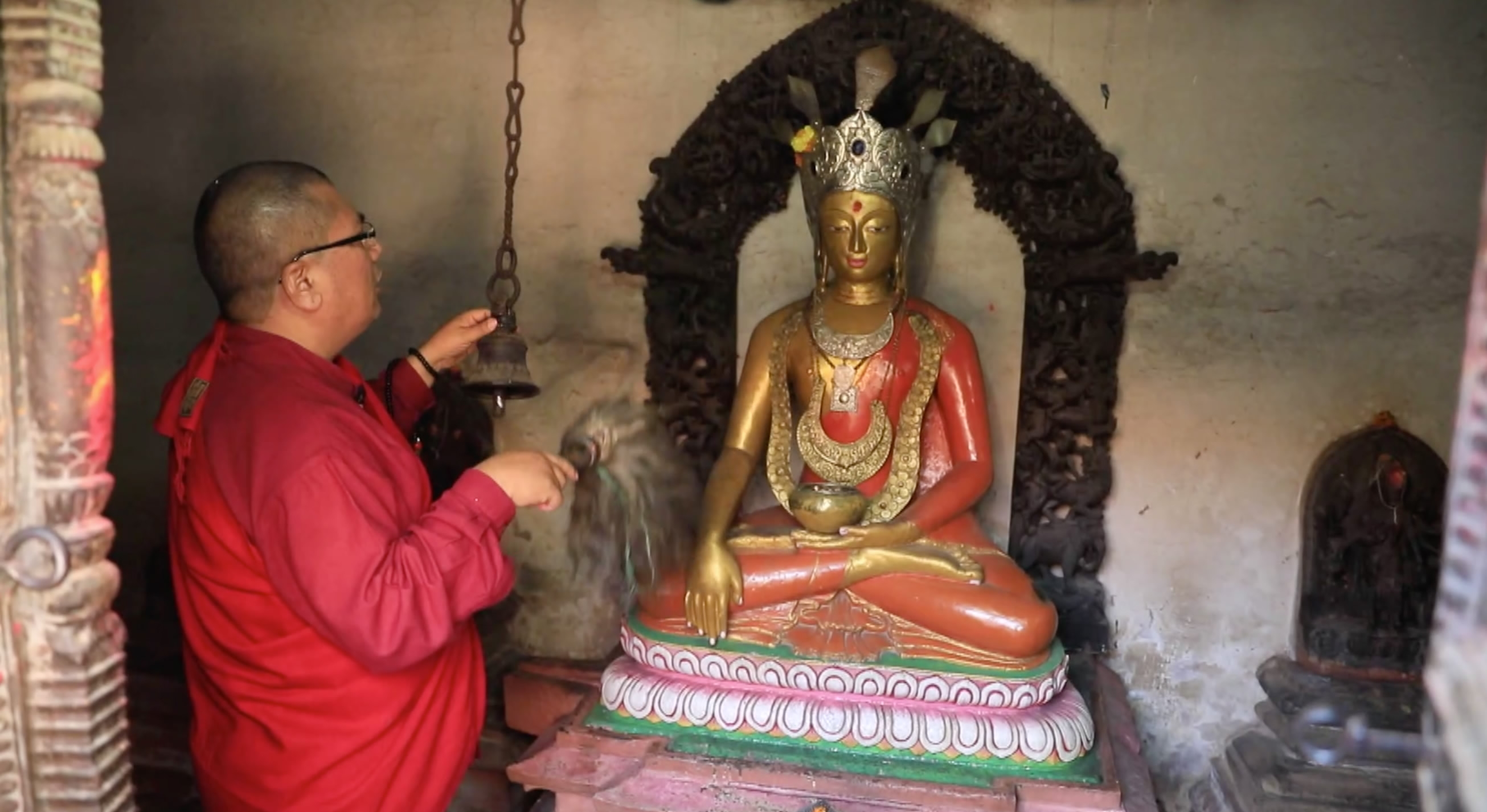
Culture
22:28, 23-Nov-2017
Faces of Belt & Road: Voice from Lumbini, birthplace of Buddha
By Ge Yunfei

In a small centuries-old monastery hidden in downtown Kathmandu, Professor Naresh Man is working on the ritual for the morning chant.
The scripture of the Heart Sutra, written in Sanskrit, is over 1,000 years old.
Professor Naresh Man is a householder of Buddhism from Lumbini, the birthplace of Buddha.
As the vice chancellor of the Lumbini Buddhist University and the President of the Nepal Traditional Buddhist Association, he has been promoting Buddhism exchanges between China and Nepal for several years.
"Buddhism can play a vital role to bring the people of China and Nepal closer together and collaborate. There are many hopes and many scopes to globalize Buddhism," he said.

/CGTN Photo
/CGTN Photo
The earthquake in 2015 destroyed or damaged many ancient temples in Nepal. After that, hundreds of millions of yuan from China were donated to repair these sites.
Though China and Nepal's Buddhism exchanges go back thousands of years, Naresh Man admitted that the current level of communication between the two sides is very limited.
He hopes his university can play a more important role in this, especially when China's Belt and Road Initiative aims to strengthen connection between the two countries.
“First, I think if China could help to develop the Lumbini University physically and academically, that would be one great contribution. Secondly, Chinese people, they can come and join our university. Chinese scholars also, they can visit and teach in the university. And on the other hand, Chinese students and monks can join our university and they can learn Buddhism not only in Nepal but also in the birthplace of Buddha,” he added.
The past two decades of economic growth in China is creating the world's biggest middle class. And more Chinese are now turning to Buddhism, hoping to find their inner peace and making donations.

CGTN Photo
CGTN Photo
But Professor Naresh Man reminds those of the purpose of making donations.
“Donation is one way to get happiness, but at the same time, we should understand why we are giving. Why should we give? What is the idea behind giving? What is the philosophy behind donation? So this is the most important thing. If you give something and expect something from others or you may give little but you’re expecting more, then it’ll become purely commercial. Once you give, you try to forget it, then it is real giving and real donation," he said.
Naresh Man said roads and railways are the physical infrastructure that shorten the distances between China and Nepal, but Buddhism could be the bridge that draws hearts together.

SITEMAP
Copyright © 2018 CGTN. Beijing ICP prepared NO.16065310-3
Copyright © 2018 CGTN. Beijing ICP prepared NO.16065310-3